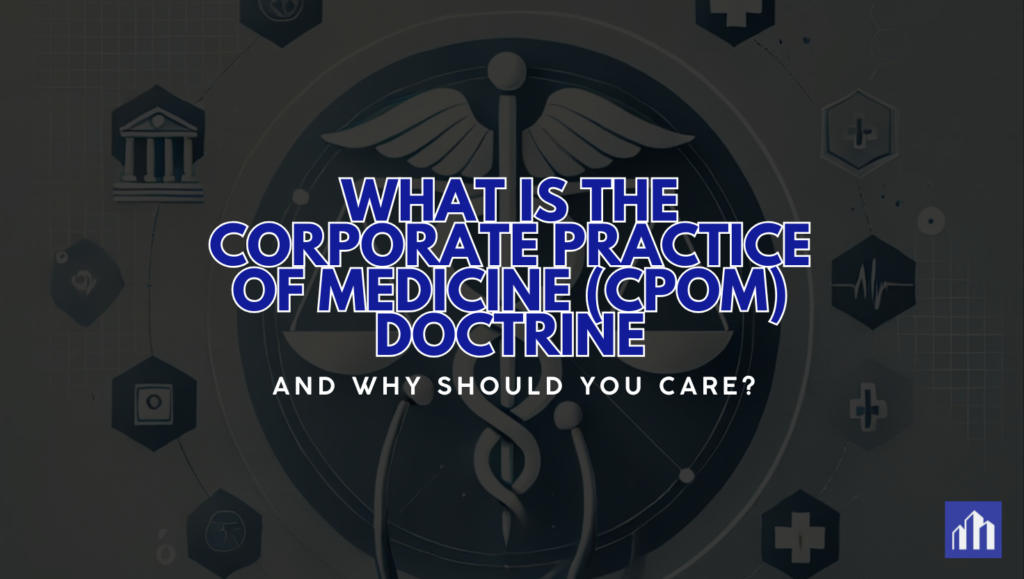The Corporate Practice of Medicine (CPOM) doctrine is a critical concept for healthcare entrepreneurs to understand, as it governs who can own and control healthcare practices.
What Is CPOM?
CPOM prohibits non-licensed individuals or corporations from practicing medicine or exerting control over licensed healthcare providers. This ensures clinical decisions prioritize patient care over business interests. While the doctrine varies by state, it applies broadly to businesses such as medical spas, IV hydration clinics, and telehealth services.
Why Does CPOM Matter?
If you violate CPOM laws, you risk hefty fines, suspension of operations, or revocation of licenses. Even in states with weaker CPOM enforcement, authorities may investigate undue influence over clinical decisions, such as:
- Setting patient care standards.
- Dictating treatments or services.
- Controlling physician compensation in a way that incentivizes specific outcomes.
How the MSO Model Helps
The Management Services Organization (MSO) Model is a common solution for CPOM challenges. In this structure:
- Licensed clinicians maintain control over all clinical decisions.
- The MSO handles administrative and business functions, such as billing, HR, and marketing. This separation ensures compliance while allowing non-clinicians to invest in and operate healthcare businesses.
By understanding and navigating CPOM laws, you can structure your business to thrive while staying compliant with state regulations.
Have Questions About Your Healthcare Business? Let’s Talk!
Understanding the legal and regulatory aspects of starting or growing a healthcare business can be overwhelming, but we’re here to help. Book a free consultation call with our expert attorney today! Whether you’re seeking clarification on the topics discussed in this post or need tailored legal advice, we’ll provide actionable insights to move your business forward confidently.
Click here to schedule your free call now and take the next step toward success!

